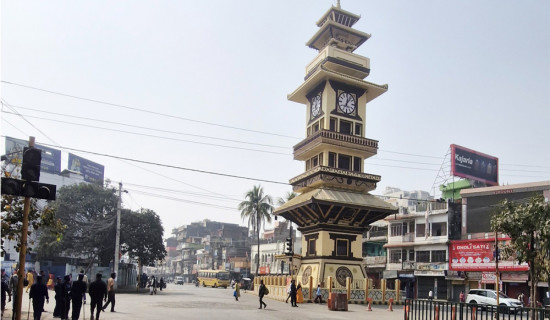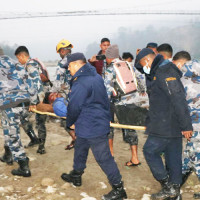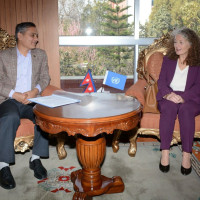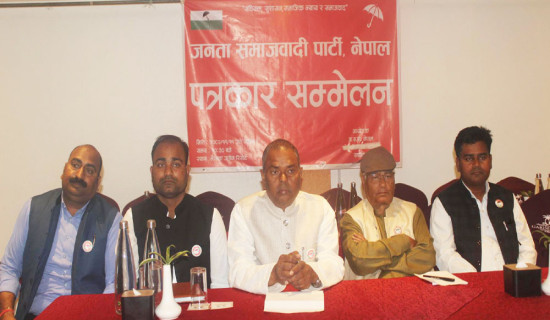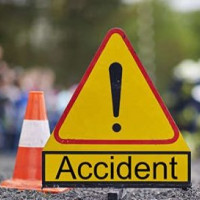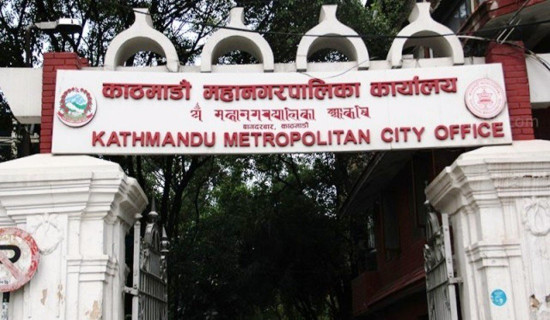- Monday, 23 February 2026
Challenges Of Local Judicial Committees
This writer had an opportunity to visit local municipalities recently to interact with local judicial committee members and gauge the issues and challenges faced by them while discharging their duties. Judicial committees have become functionally effective in ensuring that justice is accessible to the people living in rural vicinities of Nepal, as premised by the federal constitution. The constitutional provision about judicial committee enshrined in Article 217 has been elaborated by the Local Governance Operation Act 2017, laying out the process and procedure regarding the scope and modus operandi of its work. A general review of the functioning of the judicial committees in rural municipalities (Gaunpalika) and municipalities (Nagarpalika) reveals that they are mostly caught in a dilemma as to how to carry out their roles and responsibilities.
Judicial committee members remain generally confused as to whether they should limit and set focus on mediation as the sole mode of win-win dispute resolution or take recourse also to adjudication for reaching a win-lose conclusion of the disputes. To clear this confusion, no such well-defined and need-based capacity development strategy was implemented to enable them to work according to their mandate. As a result, no uniformity and commonality prevailed among the municipalities about the implementation of the roles and functions of the judicial committee. Some municipalities had to make their choice to give more emphasis to promote and enhance mediation to resolve disputes, whereas others preferred to use both mediation and adjudication, but without much success.
Confusion
The confusion was engendered as the byproduct of the provision in the law that provides for both mediation and adjudication as the mode of dispute resolution. According to law, adjudication (Nyayik Nirupan) can be a recourse only for some prescribed disputes as a last resort in case the dispute could not be resolved through facilitated dialogue and negotiation. Moreover, the confusion became further acute and persistent as some lawyers and former judges who provided trainings and orientation to the judicial committee members in their role as lead trainers and resource persons did interpret the legal provision to iterate that the judicial committees are more or less similar to judicial institutions (court) at the local level. They should set up a bench to hear and award a verdict on the disputes.
As taught by the lawyers prone to litigation by temperament and occupation, judicial committees in some parts of the country set up a bench, and the deputy mayor flaunted as if he or she were justice in the court of law. However, it is yet to be thoroughly assessed whether the benches (Ijlaash) set up in the local government were useful and effective in delivering justice to the needy people. But the situation in municipalities where non-litigating lawyers, law academics, and judges championing mediation and facilitative dialogue imparted training became a bit different. This group of trainers was more or less predisposed to make the mediation-friendly explanation of the legal provision and, therefore, emphasised the preferred use of mediation to resolve disputes to enhance local harmony and constructive relationships in the community.
As a result, in several municipalities, judicial committees made an enhanced use of mediation and facilitated dialogue to help resolve disputes and generate some exemplary successes as well. This indicates that the content and methodology of the training, professional proclivity, and bias of the trainers can have an instrumental impact on the way the recipients (in this case, judicial committees) make use of the knowledge and skills, rightly or wrongly. The 2022 local election has yielded a new composition of the judicial committees as the new elected leaders have begun a fresh tenure of their work. Judicial Committees had been reconstituted with newly elected deputy mayors taking charge of their role as coordinators.
In the previous term of the local municipalities, around ninety per cent of the deputy mayors had been women, but this has changed significantly in the current composition of the local government leadership due to new political dynamics and realignment among the political parties. Following the election, the representation of women in the judicial committee has been reduced. Nevertheless, judicial committee members have an onerous task to undertake. They therefore need regular training and capacity development activities to orient them to discharge their roles and responsibilities concerning dispute resolution as enshrined in the law. No room should be left to sustain confusion and dilemma regarding their roles and functions, as clear messages combined with knowledge and skills need to be imparted to them.
Facilitated dialogue
Since local disputes that are generally registered for consideration at the ward-based mediation centres, mediation and facilitated conversation between and among the disputing parties can help bridge differences, restore their relationships, and clear their misgivings. It is therefore necessary that a non-legal, non-adversarial, and non-confrontational mode of dispute resolution should be enhanced and adopted at the local level. The judicial committee members should be so oriented as to guide them to imbibe the ethos and values of constructive dialogue and positive relationships at the local level.
Especially in matters dealing with dispute resolution through facilitated dialogue and mediation, lawyers cannot be of much help as they are trained and indoctrinated in the adversarial ideology and argumentative posturing. They bring litigious competitive perspectives into the issues that are put on the anvil and tend to hone their skills to outwit the rivals. This adversarial approach does not help build bridges to enhance better community relationships for local peace and harmony.
(The author is presently associated with Policy Research Institute (PRI) as a senior research fellow. rijalmukti@gmail.com)



